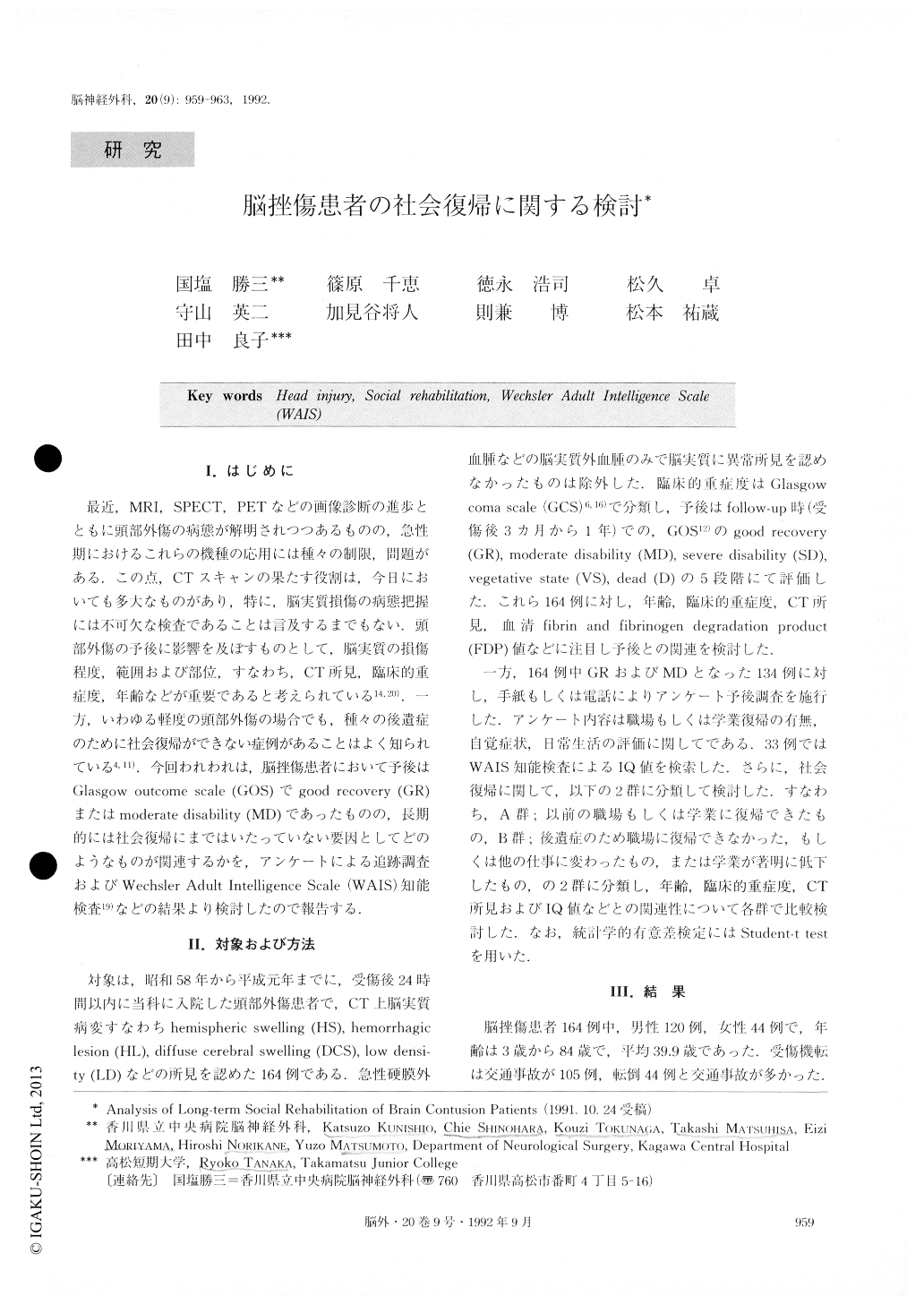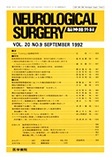Japanese
English
- 有料閲覧
- Abstract 文献概要
- 1ページ目 Look Inside
I.はじめに
最近,MRI,SPECT,PETなどの画像診断の進歩とともに頭部外傷の病態が解明されつつあるものの,急性期におけるこれらの機種の応用には種々の制限,問題がある.この点,CTスキャンの果たす役割は,今日においても多大なものがあり,特に,脳実質損傷の病態把握には不呵欠な検査であることは言及するまでもない.頭部外傷の予後に影響を及ぼすものとして,脳実質の損傷程度,範囲および部位,すなわち,CT所見,臨床的重症度,年齢などが重要であると考えられている14,20).方,いわゆる軽度の頭部外傷の場合でも,種々の後遺症のために社会復帰ができない症例があることはよく知られている4,11).今回われわれは,脳挫傷患者において予後はGlasgow outcome scale(GOS)でgood recovery(GR)またはmoderate disability(MD)であったものの,長期的には社会復帰にまではいたっていない要因としてどのようなものが関連するかを,アンケートによる追跡調査およびWechsler Adult Intelligence Scale(WAIS)知能検査19)などの結果より検討したので報告する.
164 patients with brain contusion were evaluated with respect to social rehabilitation. 70 out of 134 pa-tients (66.7%), said to have had good recovery or mod-erate disability by the Glasgow Outcome Scale (GOS), returned to full or partial employment. Factors such as age, Glasgow Coma Scale (GCS) at admission, duration of unawareness, fibrin and fibrinogen degradation pro-duct (FDP) were the most important in predicting so-cial recovery.
The Wechsler Adult Intelligence Scale (WAIS) was applied in 33 patients. The IQs of the patients who re-turned to their job fully tended to he higher than those who could not.
In the majority of patients, impaired capacity for work was caused not only by physical deficits, but by mental retardation described as such as IQ score.

Copyright © 1992, Igaku-Shoin Ltd. All rights reserved.


